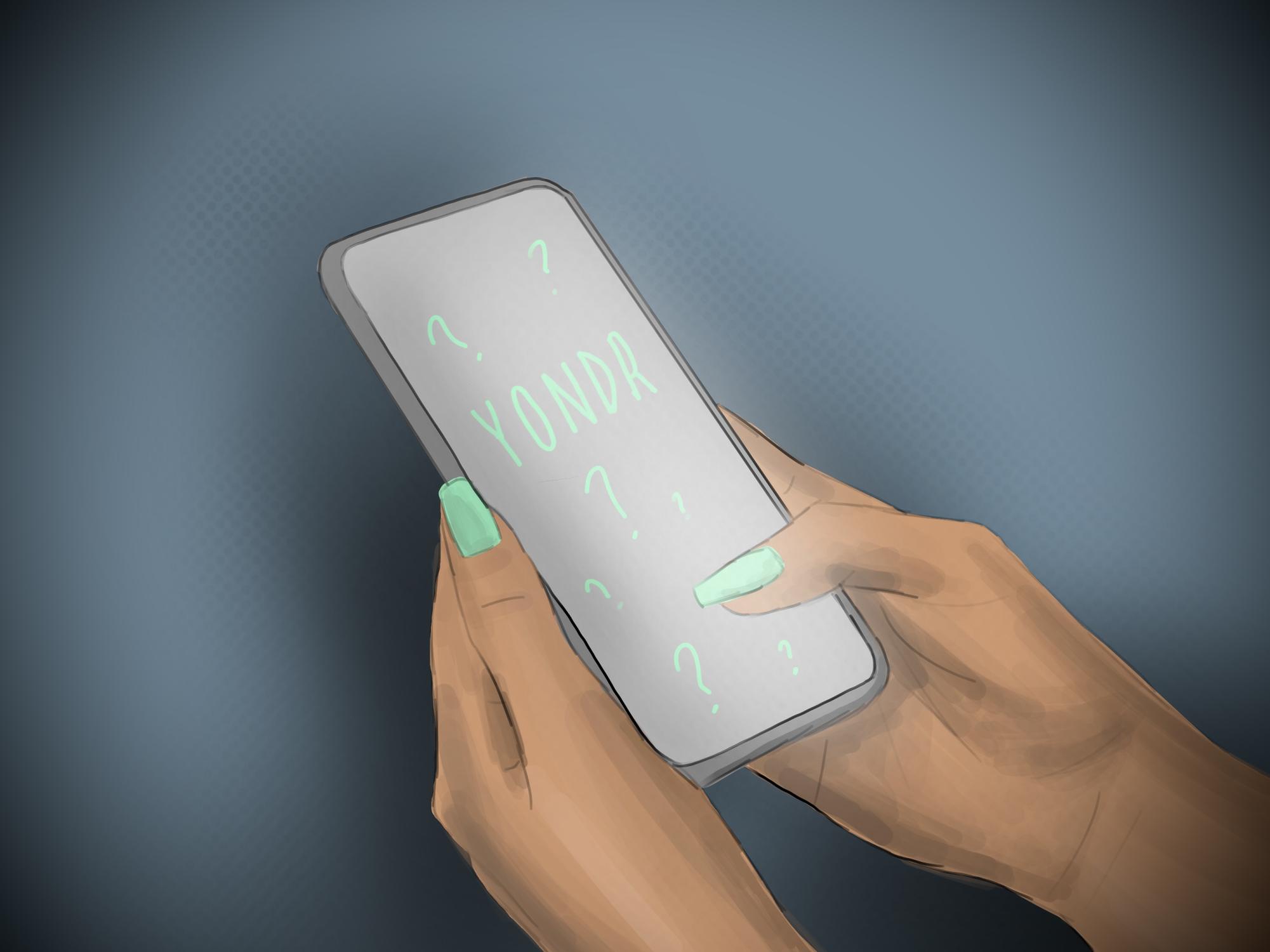TRUTH MATTERS… Donate to support excellence in student journalism
Let’s be honest: many of us don’t use our Yondr pouches.
In the age of social media and being chronically online, smartphones have become extensions of our bodies and LAUSD’s attempt to minimize classroom distractions through the Yondr phone ban has sparked considerable debate.
While the intention behind locking away devices is commendable, the execution has been less than effective, calling into question the practicality of such measures.
We’ve all seen them, the gray and green pouches with magnetic locks. The Yondr pouches, designed to lock students’ phones during school hours, have faced significant challenges. Despite their widespread adoption, many students have found ways to bypass the system.
Students have hacked the pouches, purchased their own magnets, banged them against tables, used fake phones or have simply avoided using them altogether. Not only does this undermine the policy’s effectiveness, but it also highlights a glaring oversight in anticipating student ingenuity.
LAUSD spent no small amount on this Yondr program, allocating around seven million dollars for equipment to enforce the policy, with about 80% of eligible middle and high school opting for Yondr pouches.
Funds that could have gone to hiring new teachers, improving facilities or enhancing school meals were blown on pouches that many students don’t even use.
Of course, restricting device usage can lead to improved student engagement and academic performance. Studies have shown that banning mobile phones enhanced student performance among low-achieving students without negatively impacting high-achievers. Schools have also reported a decrease in cyberbullying incidents and more frequent face-to-face interactions among students.
The benefits of reducing distractions is clear, but the practicality of such bans remains questionable.
The effectiveness of Yondr pouches relies heavily on constant administrative enforcement and student integrity. The student opposition to the phone ban, the inability of administrators to breathe down our necks and overpowering cell phone addictions have diminished compliance to the policy.
The substantial financial investment in these pouches, especially when students have found ways to circumvent them, reveals that resources should have been allocated more wisely. Investing in education staff, infrastructure and student welfare programs would have yielded more tangible benefits than attempting to enforce a policy that students are adept at undermining.
Banning phones is not inherently flawed. In fact, it aims to foster a more focused and interactive learning environment. However, the Yondr approach has been unrealistic and financially imprudent.
A more practical strategy, such as creating phone-free zones in classrooms and study areas while allowing usage during lunch or passing periods, would be a more feasible solution. Though no system is perfect, a more flexible structure can reduce the temptation to sneak phones out during class.
Technology is inescapable. Rather than waging an unwinnable war against phones, LAUSD should lead the way in creating a modern, more balanced approach, one that truly prepares students for success in the real world.





Aria • May 14, 2025 at 8:50 am
I’m a student at a school that uses Yondr pouches and I’m really trying to make a difference. Nobody uses them. At all. Not even me. everything said in this article is 100% true. Even my teachers said they don’t notice a change in grades.
Allen Zeman • Apr 10, 2025 at 7:37 am
This article is unfair in its blanket criticism and employs faulty logic. Maybe the author attended school before we banned the use from morning bell to dismissal bell.
There is no data or significant evidence shared that supports the inferences that are made. Ok, some students found a way around the yonder pouches… tell us how many as well as what the effect has been of the whole policy on academic proficiency, mental health, and safety? The author suggests that allowing phone use during lunch is better, but really? Where’s the evidence? Read Jonathon Haidt on this topic. Talk to teachers, students, and parents – then publish your informed thoughts.
Bottom line: LAUSD and other districts / schools have recognized the disutility of phones in schools and are trying to create a better environment for learning and growth. We need more evidence but the outcome data so far shows consistently positive results for no access from bell to bell. A
Bobby Mock • Apr 10, 2025 at 4:03 am
There’s lots of ways to open the pouches or just not close them. You can buy your own magnets, bang them open, weaken them with pliers, undo the stitching, use the pencil method, put in a calculator, or do the double tap method. Alternately you can have it open but only close it when a teacher is checking or just say that it’s in the school office if you have forgotten a pouch.
Elizabeth • Apr 9, 2025 at 10:07 pm
I work at two schools who implemented Yondr pouches this school year and there’s been such a drastic improvement over years past. Yes, some will (and have) look for ways to circumvent the pouch system, like placing a burner phone in the pouch and leaving their actual phone out of the pouch. But when staff notice, it gets locked up. The days of walking into a class and seeing zombies glued to their phones instead of focused on work are gone. There has also been improved socialization at my schools because of the absence of phones during unstructured time as well (e.g. lunch). Many students were using their phones as a crutch to avoid socializing and now they can no longer feed the cycle of social avoidance by using their phones. I’m proud to work in a district that took the initiative to implement a phone free school policy a year before AB 3216 goes into effect in 2026.
John • Apr 9, 2025 at 9:27 pm
Our Nation’s largest teachers’ unions – the National Education Association and American Federation of Teachers- were among forty organizations who signed a letter calling on schools to adopt a “bell-to-bell” phone-free policy. Giving students a real break from their phones helps them socialize and learn, while allowing teachers to focus on teaching instead of monitoring device use. This article is shortsighted; the solution is improve the phone free school system.
tybur • Apr 9, 2025 at 9:08 pm
How about instead of these passive methods where you just hope you don’t have to interact with the students you instead tell them that they can’t have their phones on campus and you confiscate them if you see a student with one.
You know empower the teachers to teach and parents have to kind of recognize that you give up some of your parenting power when your kid goes to school but it’s a worth it trade-off in theory because they get an education and they learn some Independence.
Scott • Apr 8, 2025 at 8:36 pm
I teach at a school where we instituted pouches. You’re right, not many of the students use them. However, I have had almost zero issues with phones since they received their pouches. If their phone is out, it goes in their pouch and gets locked up. No pouch? Then I take it and hold it until the end of the day. Phones were a major issue before they received their pouches, but the mere presence of them has turned that around for the better.
Smiley • Apr 8, 2025 at 6:11 pm
Students may not have their phones locked up if they are actively subverting the system but the damn phones are out away and out of sight.
The grades in my classes are returning to normal and slowly we are changing a culture that allowed kids to cheat their asses off over the last five years.
No more! With software like Go Guardian and an active eye, I’m able to ensure that academic integrity has returned to my room and program.
It’s impossible to police 2,500 students on a phone, not that hard when it’s only a hundred or so.
John Williams • Apr 8, 2025 at 12:52 pm
Smartphones and particularly social media are negatively impacting teens in ways in which few imagined 12 years ago. They are literally re-wiring a still forming brain. Throwing our hand up and succumbing to it just because “it’s hard”, or in your words unwinnable isn’t the answer. We don’t sell cigarettes to kids, yet some find a way to get them. Does that mean we should just make it legal for kids to smoke? Same with alcohol. We buy books for every student and some students don’t open them. Should we not but books? Are they too a waste of money.
Joel Nam • Apr 8, 2025 at 12:00 pm
Phenomenal article